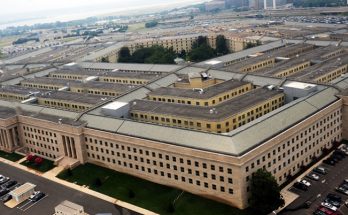
In a dramatic escalation of the emerging showdown between El Salvador’s new populist presidential administration and the opposition-dominated legislature, President Nayib Bukele deployed armed police and security personnel into a session of the National Assembly on Sunday in a risky and potentially incendiary gambit to compel the legislature to approve a proposed security funding loan.
Bukele is the first candidate in decades to secure a presidential win from outside the established structures of the FMLN and ARENA, two parties that trace their origins back to the political divides of the country’s long and traumatic civil war. Riding a wave of public dissatisfaction over government corruption, legislative gridlock, and El Salvador’s acute crisis of criminal violence, among the worst in the world on a per capita basis, Bukele was elected to the presidency in February 2019 with 53 percent of the vote.
However, the conservative Grand Alliance for National Unity (GANA) party with which Bukele aligned himself for the presidential campaign achieved only modest gains in the same general election, with the majority of seats in the National Assembly remaining with ARENA and the FMLN.
The resulting balance of power in the legislature appeared to signify a significant continuity with the governing model of previous years and ensure that the new administration would need to compromise with and accommodate the interests of existing political networks. However, emerging legislative stalemate over one of the new administration’s principal policy initiatives would soon trigger a confrontation between the two camps.
The proximate cause of Sunday’s events lay in the administration’s appeal to the legislature for the approval of a $109 million loan from the United States for law enforcement and security funding. Like preceding presidential administrations, Bukele has made the reduction of crime and street violence a centerpiece of his political platform, and promised to take an aggressive approach to confronting violent gangs through a strategy dubbed the Territorial Control Plan.
The cornerstone of the plan is to pursue long-term large-scale deployments of law enforcement and ground forces to areas of acute criminal activity, re-establishing government presence on the street to deter criminal activity. In the early months of Bukele’s presidency, the country has seen a moderate though significant reduction in lethal criminal violence, though critics contend that this simply reflects ongoing trends and that the new Territorial Control Plan largely fails to differentiate itself from the militarized policing strategies launched under several previous administrations.
The administration’s proposed loan package is to be used primarily to supplement the procurement funding of military and law enforcement bodies in support of this initiative. However, the bill faced some opposition within the Assembly, with some legislators desiring a greater level of transparency regarding the ultimate destination of the funds. Negotiations over the loan’s passage became increasingly terse as the administration’s desire for its swift passage came into conflict with the legislature’s stated concerns, and some in the Assembly began to decline to attend debates surrounding the bill in protest of what they called the administration’s high-pressure tactics.
With legislative gridlock emerging, Bukele first moved to rally his supporters to his cause and called on them to conduct protests outside the Assembly, successfully marshaling large crowds of demonstrators calling for the bill’s passage throughout the week preceding the crisis. However, when these actions failed to produce a correspondingly immediate change in the legislative environment, Bukele moved to coerce the opposition-dominated Assembly by deploying armed security forces into the chamber as a stark show of force. The legislature now has been handed a one-week reprieve, by the end of which Bukele has stated he expects the loan to be approved, but there is little clarity on what actions might be taken if such a result does not materialize by the deadline.
In a wide-ranging interview with El Pais, Bukele justified the unexpected move by stating that his responsibility to reduce criminal violence in the immediate term overrode the political considerations of the opposition parties, which he characterized as being illegitimate political actors on account of their respective roles in the country’s civil war.
Meanwhile, the opposition parties and a number of independent bodies have condemned the government’s move as an attempted presidential coup, and criticized the administration’s move as an incendiary gambit that undermines the stability of the country’s democratic institutions and indicates the emergence of an authoritarian tendency in Bukele’s administration.
Bukele’s theatrical speeches denouncing the corruption of the established political parties and his assertive language on the need to confront crime have played well with and further mobilized his significant political base, and initial levels of public support for his actions against the legislature appear considerable. However, without a clear resolution in sight, the potential for the row between the legislature and the presidency to escalate into an outright constitutional crisis is high. The outcome of such a crisis could do much to permanently destabilize the balance of power between El Salvador’s various branches of government, and the perceived democratic legitimacy of even the victorious parties would be unlikely to emerge unscathed.
A lifelong enthusiast of armored vehicles, Thomas serves as an analyst on Forecast International's Military Vehicles Forecast product. In addition, Thomas is responsible for updating the reports and analysis within Forecast International's International Military Markets – Latin America & Caribbean product. He also provides analysis for Forecast International's Airborne Retrofit & Modernization Forecast. Before this assignment, Thomas served as a research assistant for Forecast International's analytical team and has made written contributions to the Civil Aircraft Forecast, Military Aircraft Forecast, and Rotorcraft Forecast services. Thomas derives his knowledge from a multidisciplinary background, with a strong emphasis on the history and politics of Russia and the former satellite republics of the Soviet Union. He has studied in the Russian Federation at Saint Petersburg State University and is proficient in the Russian language at an advanced level.





